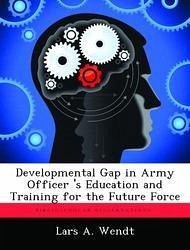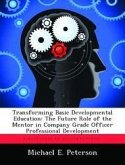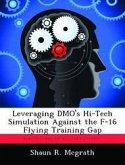Throughout this century and particularly during the Army of Excellence era, a concerted effort was made to match leader knowledge and experience to the appropriate level of responsibility. A robust leader and training development program emerged in the late 1970 's that provided leaders a progressive and sequential educational system to prepare them for the different levels of responsibility. Today, however, there is evidence of changes occurring in areas which, if left unattended, may dramatically alter the relevance and the effectiveness of the Army 's leader development system now, and even more profoundly, by 2025 for the Future Force. The first change is a shift in leader focus from information gathering to rapid learning. The most direct implication for leader development is an increasing need to focus on "how "" to think as opposed to "what "" to think, and to accelerate the development of rapid learning skills. The second area of change is as a shift from a linear and compartmented relationship between tactical, operational, and strategic levels of war to a more over-lapping and inter-connected relationship. The most direct implication for leader development is the need to purposefully nurture operational / strategic know-how earlier in professional development, as opposed to waiting until the 20th year of service. The information age clearly demands redefining leader thinking requirements. The challenge for leaders is to shift from information deficit to information overload; to know how to use that abundance of information and have the wisdom to relate it to an increasingly complex operating environment. The Army must shift focus from teaching what to think, to how to think, and adopt rapid learning techniques to exploit the knowledge advantage. It must also shift toward more rapid experiential growth in order to exploit a wisdom advantage. It must also shift toward more rapid experiential growth in order to exploit a wisdom advantage. The Army 's relucta
Hinweis: Dieser Artikel kann nur an eine deutsche Lieferadresse ausgeliefert werden.
Hinweis: Dieser Artikel kann nur an eine deutsche Lieferadresse ausgeliefert werden.







